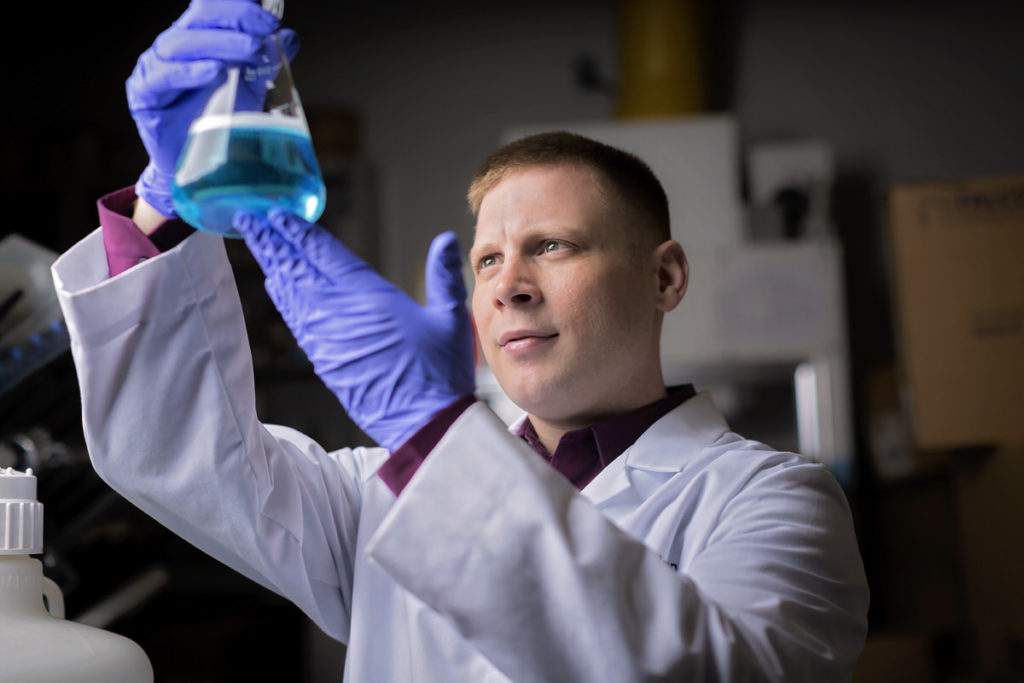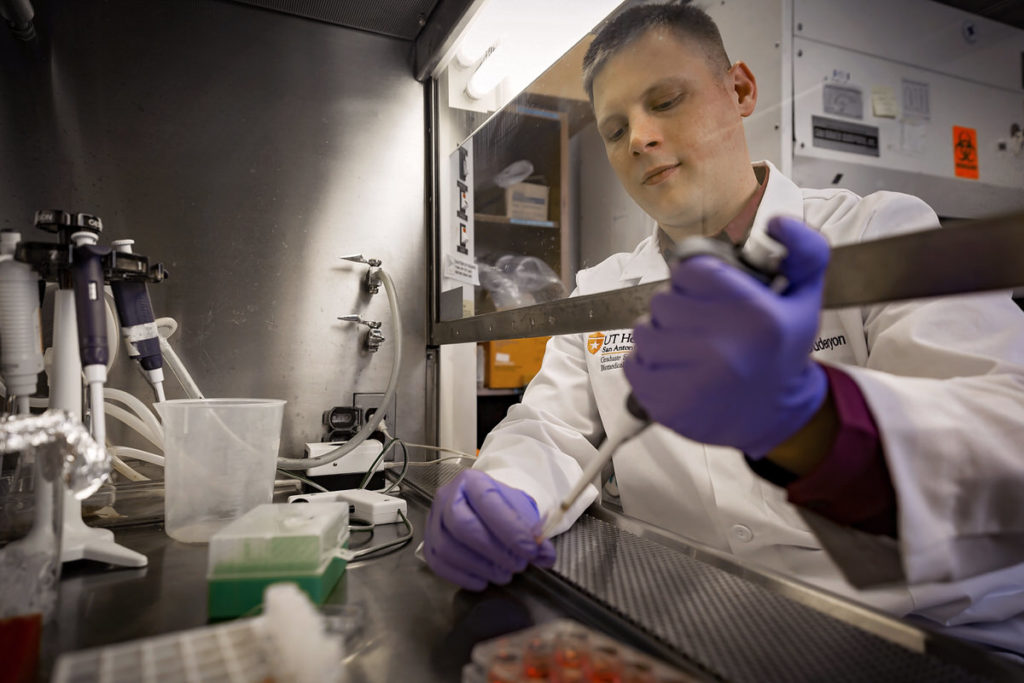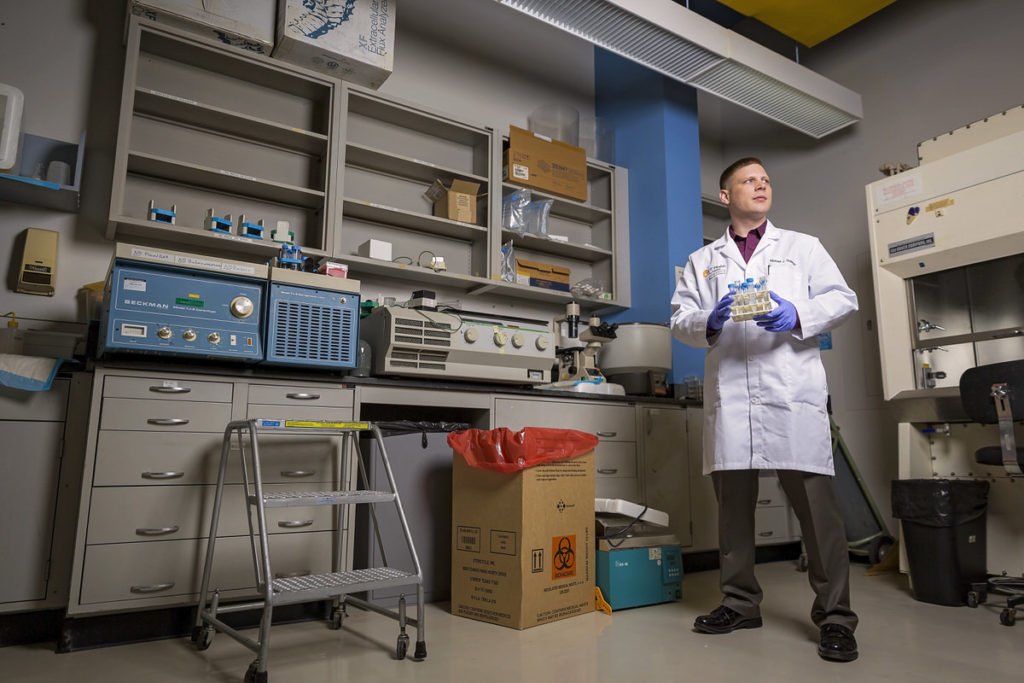Michael Guderyon: Being At The Forefront of Aging Research
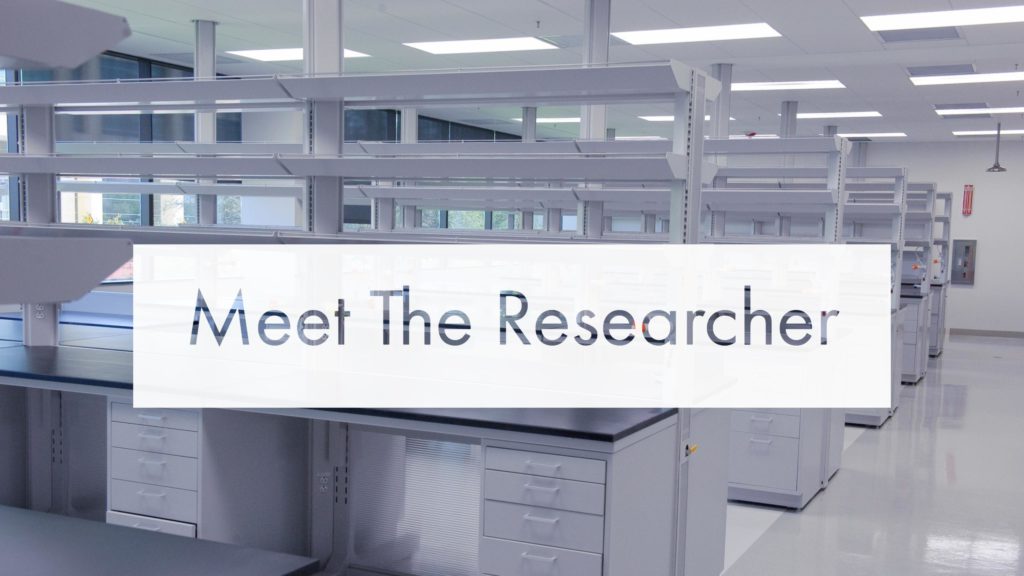
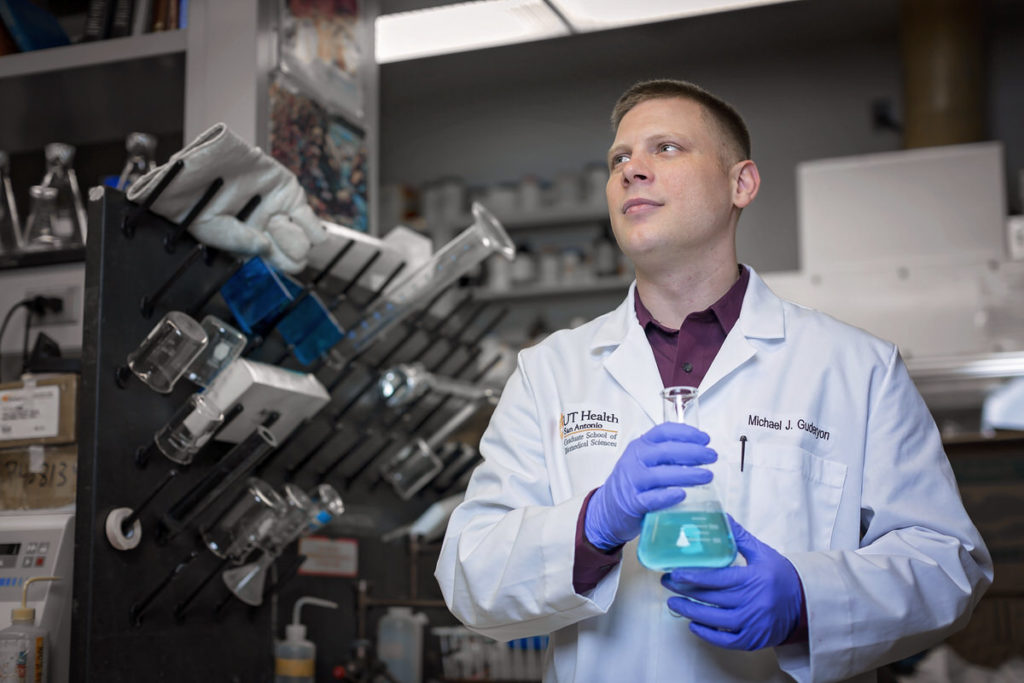 Michael Guderyon had what he calls an unconventional path to research. Guderyon was born in Orlando, Florida but raised in a small town in South Louisiana, where he planned to become a mechanical engineer until his high school teacher introduced him to the realm of telomeres and aging.
Michael Guderyon had what he calls an unconventional path to research. Guderyon was born in Orlando, Florida but raised in a small town in South Louisiana, where he planned to become a mechanical engineer until his high school teacher introduced him to the realm of telomeres and aging.
“The idea of living longer—and the chance to make a difference in the world was intriguing to me,” he said. “People are already working on curing diseases but if I could help extend lifespan; that would expand the healthy years of someone’s life and extend the number of years before people would be diagnosed with a disease.”
After graduating high school, he decided to join the U.S. Air Force where he was recently honored as an “Inspirational Airmen” at the 2017 Fall Senior Leader Conference at Ellsworth, AFB, South Dakota.“The Air Force, to me, represents opportunity, an equalizer if you will. The motto of the Air Force is the sky is the limit. Everyone can do the basics but to excel you have to work hard…the Air Force was that opportunity for me to shine.”
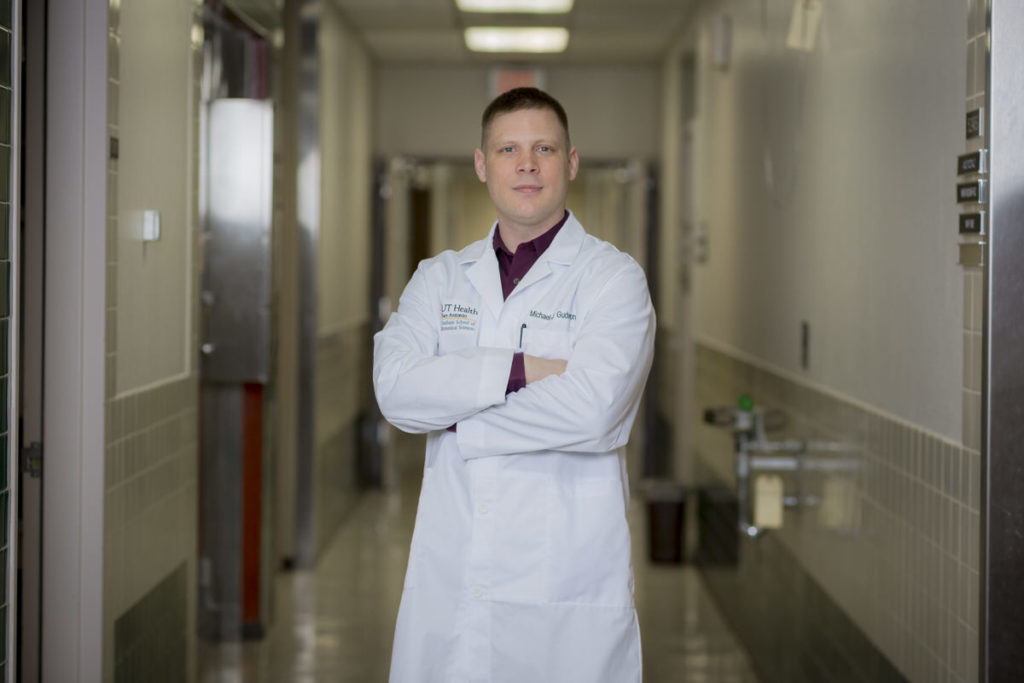 Being in the Air Force provided Guderyon with a lot of different experiences like visiting the Middle East and South Pacific, which proved challenging for him to keep up with school work.
Being in the Air Force provided Guderyon with a lot of different experiences like visiting the Middle East and South Pacific, which proved challenging for him to keep up with school work.
“I was deployed in the middle of the semester which hurt my grades,” he said. “For me, the military comes first.”
Despite the hurdles, Guderyon was committed to pursuing his dream to become an aging researcher. He completed two associate’s degree and two bachelor’s degrees before applying to Ph.D. programs. Unfortunately, he was denied due to GPA issues and ended up going to the University of Arkansas for Medical Sciences to study biochemistry and molecular biology.
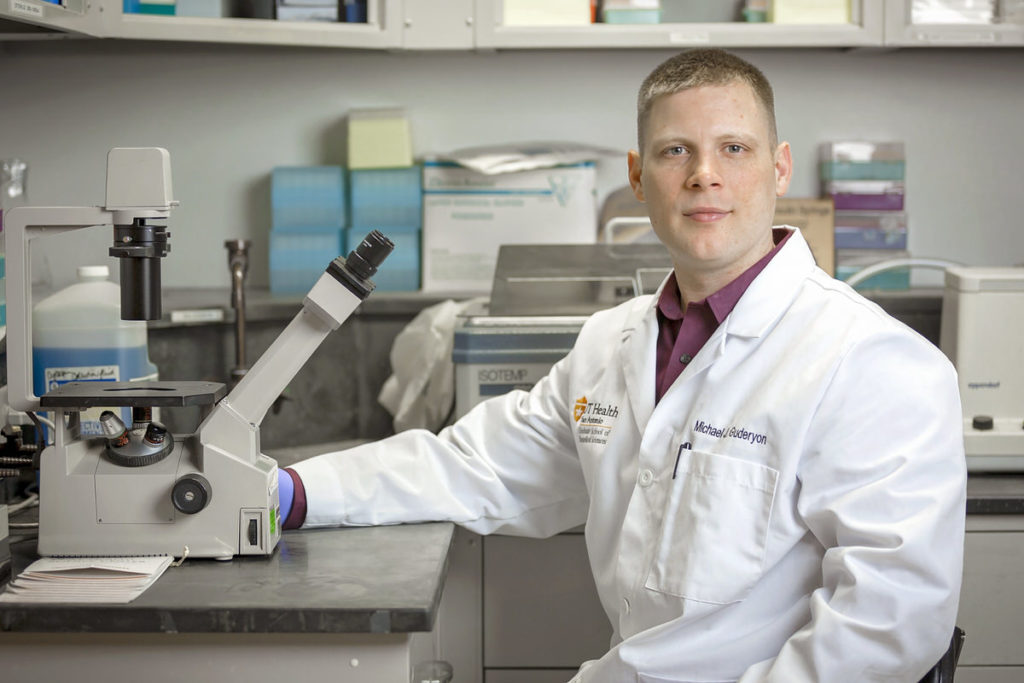 At the University of Arkansas for Medical Sciences, he worked on some innovative research on the Hepatitis C virus.
At the University of Arkansas for Medical Sciences, he worked on some innovative research on the Hepatitis C virus.
“It was very interesting research and I worked with a wonderful team, but it wasn’t my dream,” he said. “My dream was aging so when I applied again to Ph.D. programs, I only applied to schools with aging programs.”
Guderyon was drawn to UT Health San Antonio for several reasons.
“Out of all the places I interviewed, it was the most aesthetically pleasing—the facilities were new and I also saw that the culture here felt warm and accepting, which reminded me a lot of South Louisiana.”
He was also impressed by the breath of expertise and wealth of resources at the Barshop Institute for Longevity and Aging Studies.
“I felt that I would have the best training in aging by coming here and I was right….I didn’t want to just be a researcher who worked on an aging project, I wanted to be an expert in aging and at the forefront of aging research.”
Currently, Guderyon is a Biology of Aging student in Dr. Senlin Li’s lab working on research to improve bone marrow transplant methods using stem cells. Specifically, he is transplanting young stem cells into older mice in an effort to rejuvenate the blood and immune systems.
“This is important because there are many labs throughout the world who are working to rejuvenate old stem cells and more young people storing their cells in stem cell banks,” he said.
The idea behind these stem cell banks is that you could be able to use them when you need them in the future.
“Today bone marrow transplants are reserved for life-threatening diseases but in the future, maybe not. People are already storing their stem cells but there aren’t many options for people to use them for purposes other than emergencies,” he said. “My project will help by creating a way for people to safely transplant them.”
The study should be done by Dec 2018 and he is working with the Office of Technology Commercialization here at UT Health to develop a start-up company that will drive clinical trials for this technology. Guderyon plans to use his talents to best serve this company, with the ultimate goal to lead as CEO while continuing his military career with the Air Force Reserves.
“There aren’t a lot of scientists. I hope there will be more scientists in the world and that people won’t think that science is out of reach,” he said. “Everything around us is a product of science and yet there are so few people today working on it, imagine if we were more science literate.”
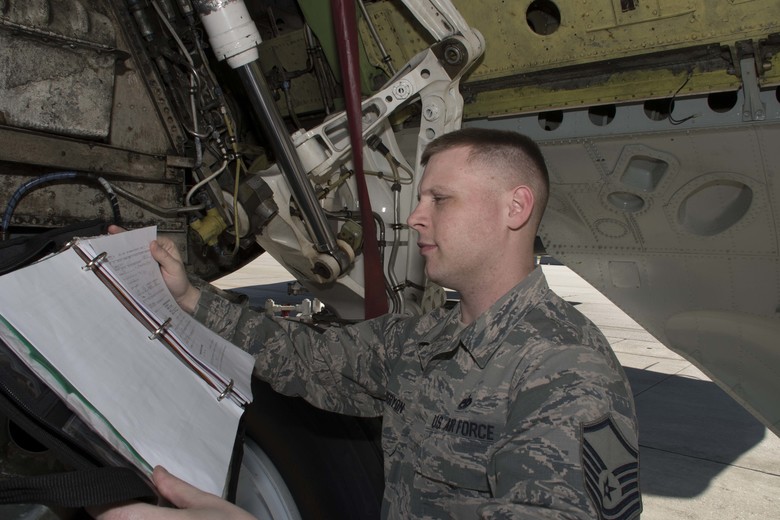
U.S. Air Force Master Sgt. Michael Guderyon, assigned to the 307th Maintenance Squadron, checks the maintenance log of a B-52 Stratofortress at Barksdale Air Force Base, Louisiana, March 3, 2018. As a Reserve Citizen Airman, he serves as a structural maintenance mechanic and on the civilian side, Guderyon is a doctoral student doing research using stem cells to find cures for more than 25 different diseases. (U.S. Air Force photo by Master Sgt. Ted Daigle/released)
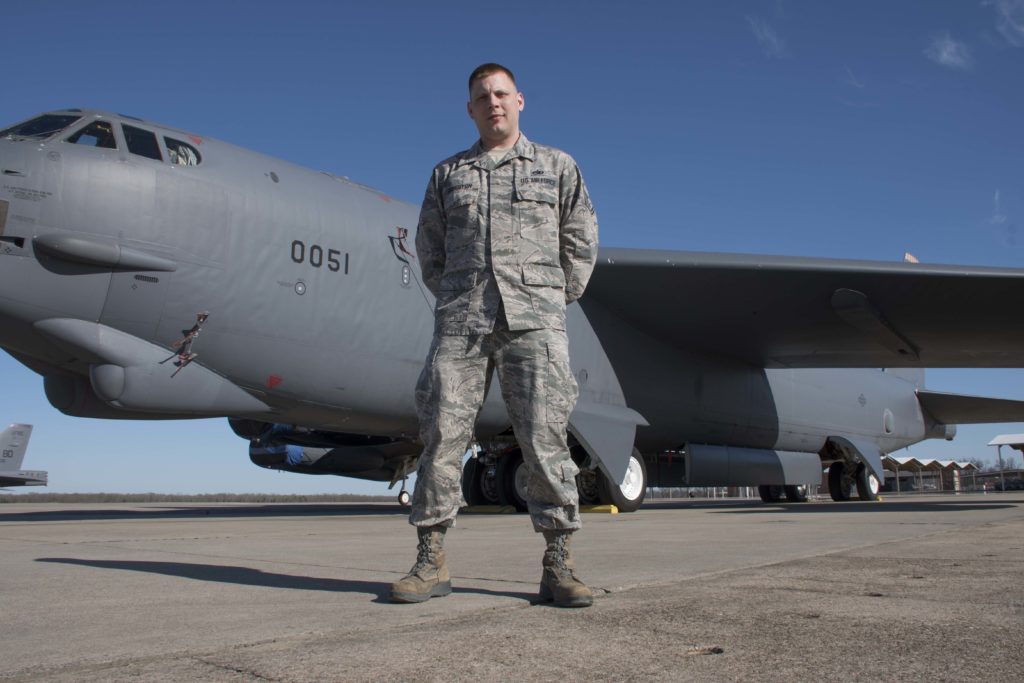
U.S. Air Force Master Sgt. Michael Guderyon, a traditional reservist with the 307th Maintenance Squadron, stands in front of one of the B-52 Stratofortress bombers at Barksdale Air Force Base, Louisiana, March 3, 2018 where he serves as a structural maintenance mechanic. During his civilian time, Guderyon, is also studying to gain his doctorate in Biology of Aging at University of Texas Health Science Center at San Antonio. (U.S. Air Force photo by Master Sgt. Ted Daigle/released)
A Day in the Life of a Ph.D. Student at UT Health San Antonio Video
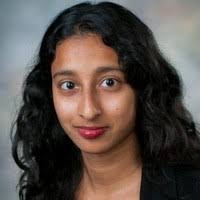 This article was written by Charlotte Anthony, marketing specialist at the Graduate School of Biomedical Sciences at UT Health San Antonio. This article is part of the “Meet The Researcher” series which showcases researchers at the Graduate School of Biomedical Sciences at University of Texas Health Science Center San Antonio.
This article was written by Charlotte Anthony, marketing specialist at the Graduate School of Biomedical Sciences at UT Health San Antonio. This article is part of the “Meet The Researcher” series which showcases researchers at the Graduate School of Biomedical Sciences at University of Texas Health Science Center San Antonio.

